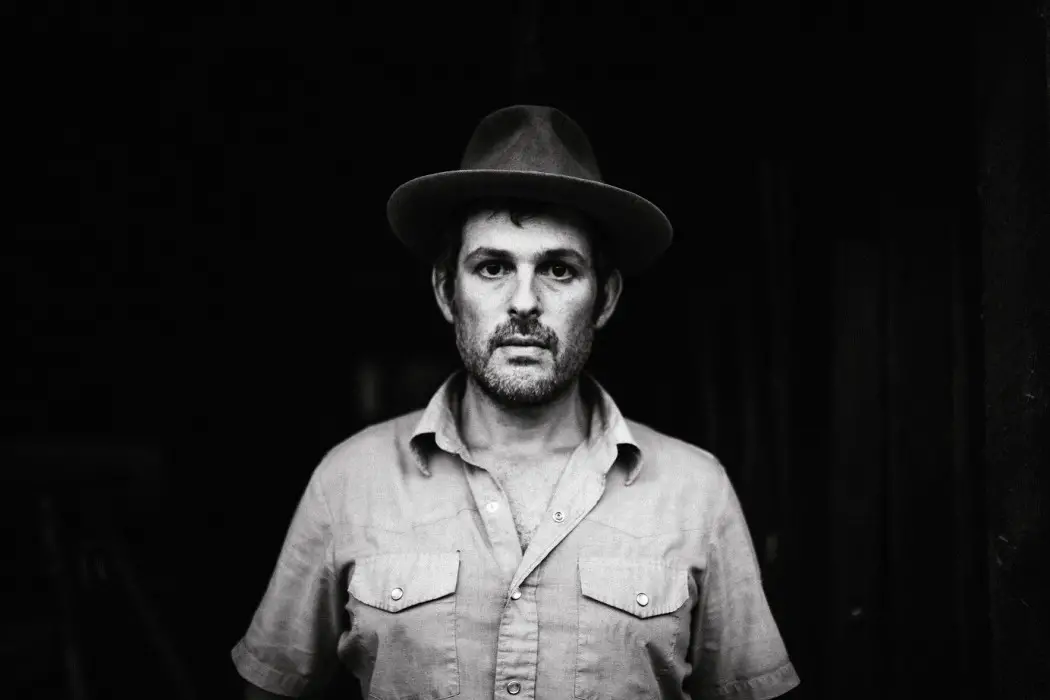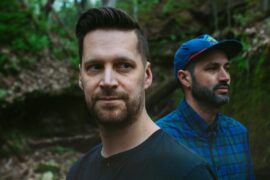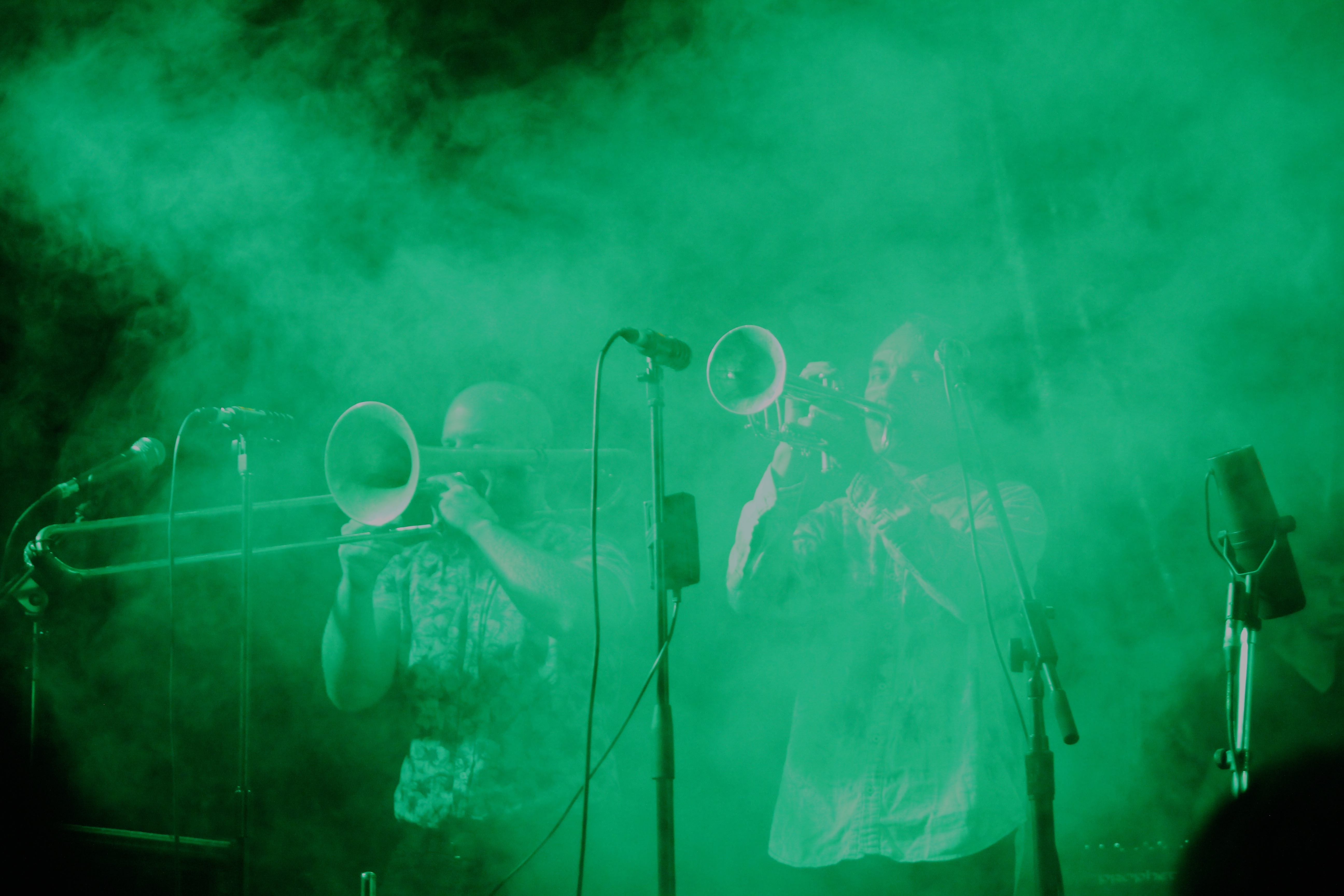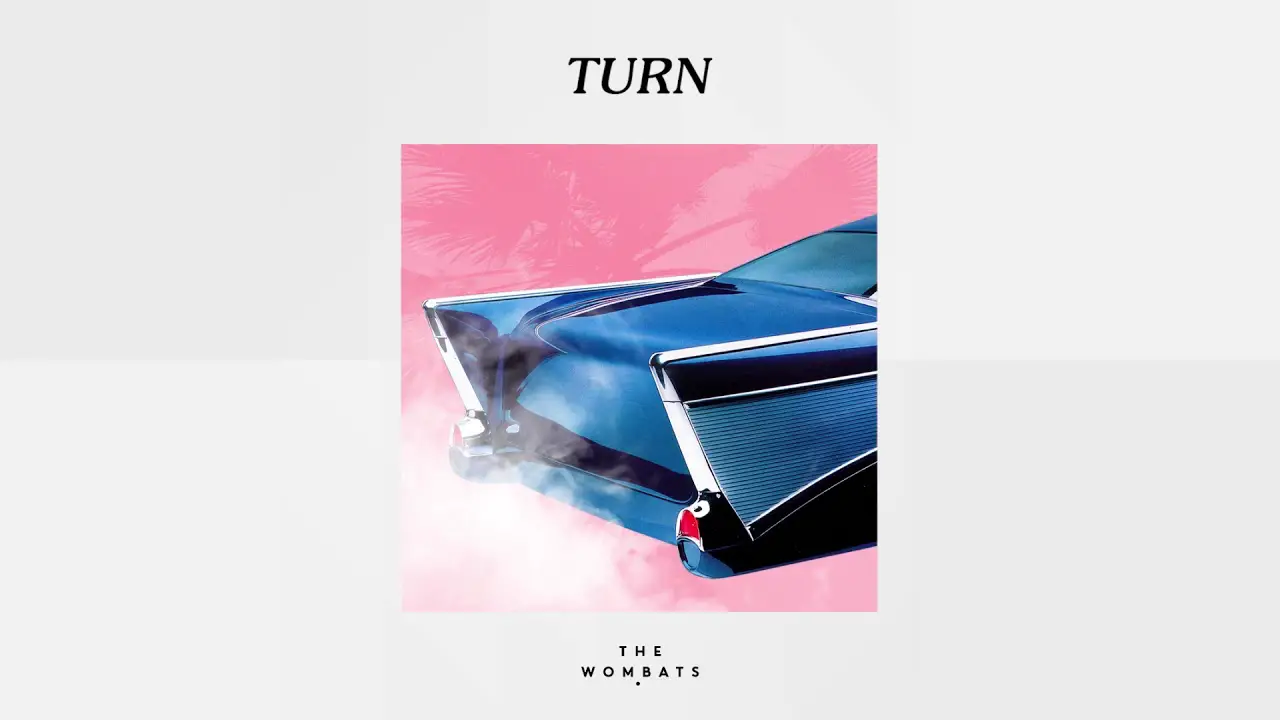Singer/songwriter Gregory Alan Isakov dives deep into his fourth album ‘Evening Machines,’ a breathtakingly brilliant indie folk journey through the depths of darkness, redemption, and the human condition.
— —
There’s definitely this basic human struggle; basic human loneliness and brokenness that everyone is dealing with – that everyone’s experiencing… I don’t find any of the music sad, but I find a lot of hope in the music.
Gregory Alan Isakov’s Evening Machines is a haunting, transportive journey. Released October 5, 2018 via Dualtone Records, the singer/songwriter’s fourth album dwells in the deep end of emotion, immersing listeners in a finessed balance of light and heavy music perfect for processing life’s more powerful moments.
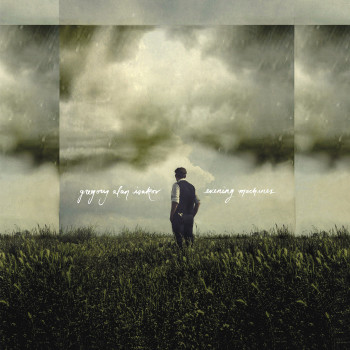
For Isakov, 39, creating Evening Machines was itself a cathartic experience. “I think it was the digestion of a certain period that I was going through from touring all the time,” he reflects. “A lot of what was influencing me lyrically was stuff going on in the media with immigration – my family are all immigrants, and I really can resonate with what’s going on – but also just the idea that there are so many ways of moving forward: There are so many different ways to talk about that. I had also had a really, really hard year, the year before, investigating some anxiety that I was going through. I think it was just kind of helping me through all that.”
“Making records, for me, it’s extremely laborious,” Isakov admits.
Taking just over a year to complete, Evening Machines is the fastest album Isakov has ever made. While much of its inspiration derives from moments on the road, the album itself was developed and recorded in the artist’s barn-studio in Colorado (in addition to being a musician, Isakov is a full-time market farmer with a three-acre farm). “I set up the barn and mic’d everything up, and ran around the room for seven months and tracked-out all the songs, writing all the lyrics on the walls on big pieces of paper and stuff… And then had the band come in, and we worked through them, and kind of whittled it down, trying to make sense of a record.”
Isakov’s creative process is unique, but it’s served him faithfully over the years – he’s been working that way forever: “I work with these giant pieces of paper that I stick on the walls. There’s probably 50 of them up in my space right now. I can see everything. I can see my entire vocabulary for everything that I’m working on, or that I’ve been working on, that it isn’t finished. It is interesting; as writers, we have this vocabulary, and there are certain words that have a lot of power when they’re sung; I would say they sing well, or something – but I’m constantly revising my vocabulary. I’ll run around the room and I’ll notice things that I would never know that I even say.”
It was under these conditions that Isakov made his fourth album. “I was doing a lot of growing during the summer months, and I usually don’t play or tour a lot in the summer because of that, but with Evening Machines I was working mostly at night for the summer and then it was full-time fall, winter, and spring… I would just stay up really late and work with all this gear that I had laying around.” The album’s title is derived from Isakov’s late-night sessions in the barn, an environment that deeply shaped the music’s overall tone.
Glowing with ambient folk warmth, Evening Machines feels like a spark of light in the dark. Isakov recalls how the songs and sounds he was making ranged from dark and heavy indie rock, to light and spacious acoustic. “Aesthetically, I wanted to have both. What we’re doing live is heavier a lot of times, and I wanted to have that element – but I love making quiet records; I love making records for one person listening. So that was sort of the intention, or what came out, I guess.”
I love making records for one person listening.

Evening Machines begins with “Berth,” a poignant tune led by a lone melacholic piano. The word berth refers to a ship’s anchor space at a dock; Isakov sets sail into this song and the album with the line, “New York lady, holding in her heavy hand, sacred lantern, guiding dawn… quit all that looking back.”
A symbol for moving on – new beginnings, change, and so forth – “Berth” establishes Evening Machines‘ mellow mood while looking into the future. “This is sort of a triumphant song for me,” Isakov says. “Getting through a really tough period of time.” One could be forgiven for mistaking such triumph for something darker. The track is rife with somber reflection: “Casting glances backwards but it’s not your fault. Turn to salt for wondering.” Nostalgia gleams in the half-light, casting a wide and plaintive shadow as the artist poetically illustrates an ethereal deliverance.
We ship off from “Berth” and fly over “San Luis,” a heartfelt and lighter ode to a time in one’s life that was never meant to last. “Fumbling round in the smoke, spending time chasing ghosts,” Isakov sings. “Hold me down, hold me down, child.”
California called you queen
With your golden hair and magazine
Were you somewhere in-between?
Fast asleep, a flying dream
I’m a ghost of you, you’re a ghost of me
A bird’s-eye view of San Luis
“I started it in the great sand dunes in San Luis Valley in Southern Colorado, and there’s a lot of Colorado in that song: The feelings and the kind of spirits that I found there, that made it into the writing,” Isakov shares. “But I finished it in San Luis Obispo, in California on tour. And it was trippy, because I was in this hotel, and it felt bizarre…”
There are moments, when asking Gregory Alan Isakov what his songs are about, that he shrugs with a sincere smile and laugh; as though he knows as little about them as the next person. “A lot of times, to be completely honest, when they’re happening, I have no idea. They’re sort of writing themselves,” he says. “I’ll be whittling down, and then some sort of story pokes through and kind of surprises me. That’s my process; I don’t know if I’ve ever had anything more concrete ever before.”

Sometimes, Isakov expresses surprise at his own creations; he treats them as though they’re their own beings, and he’s just the vessel bringing them to life. “It’s weird.. I think when I’m working on them, they’re mine – they’re on my wall – well, they’re not mine, but I’m working with them. I’m not going to let them down as much as I can. But when they’re done I have no real ownership or memory even of creating anything!”
“A lot of my songs become a little bit ineffable for me to describe, because I start with an emotive quality, and that’s the most important thing: When I come back to a piece of music, I’m like, “Does this make me feel anything?” “Does it take me someplace?” “Am I better when I come back from it?” Those are the questions that I’m asking of the songs. Those are the tests that have to be completed.”
Isakov paid extra close attention to texture and timbre this time around, working with several instruments he had previously never incorporated into his music. “This record, to me, is really different than anything I’ve made before. There’s a lot of electronic drums, some synth sounds that Steve Varney and I were working on together that I’ve never used – I’ve only ever used organic acoustic or electric instruments. But there’s a lot of keyboards on this record; I wrote a lot of songs on the Rhodes piano and the Wurly for this one – just because I think I got tired of guitar for a little bit! I don’t know why; there’s a couple songs that don’t have guitar on them at all, and that was so refreshing to me. For me, there’s also a lot repetition and repeats throughout the album – a lot of songs that have a refrain that repeat a lot. I don’t usually write that way; that’s not usually my style. I rarely have a chorus!”
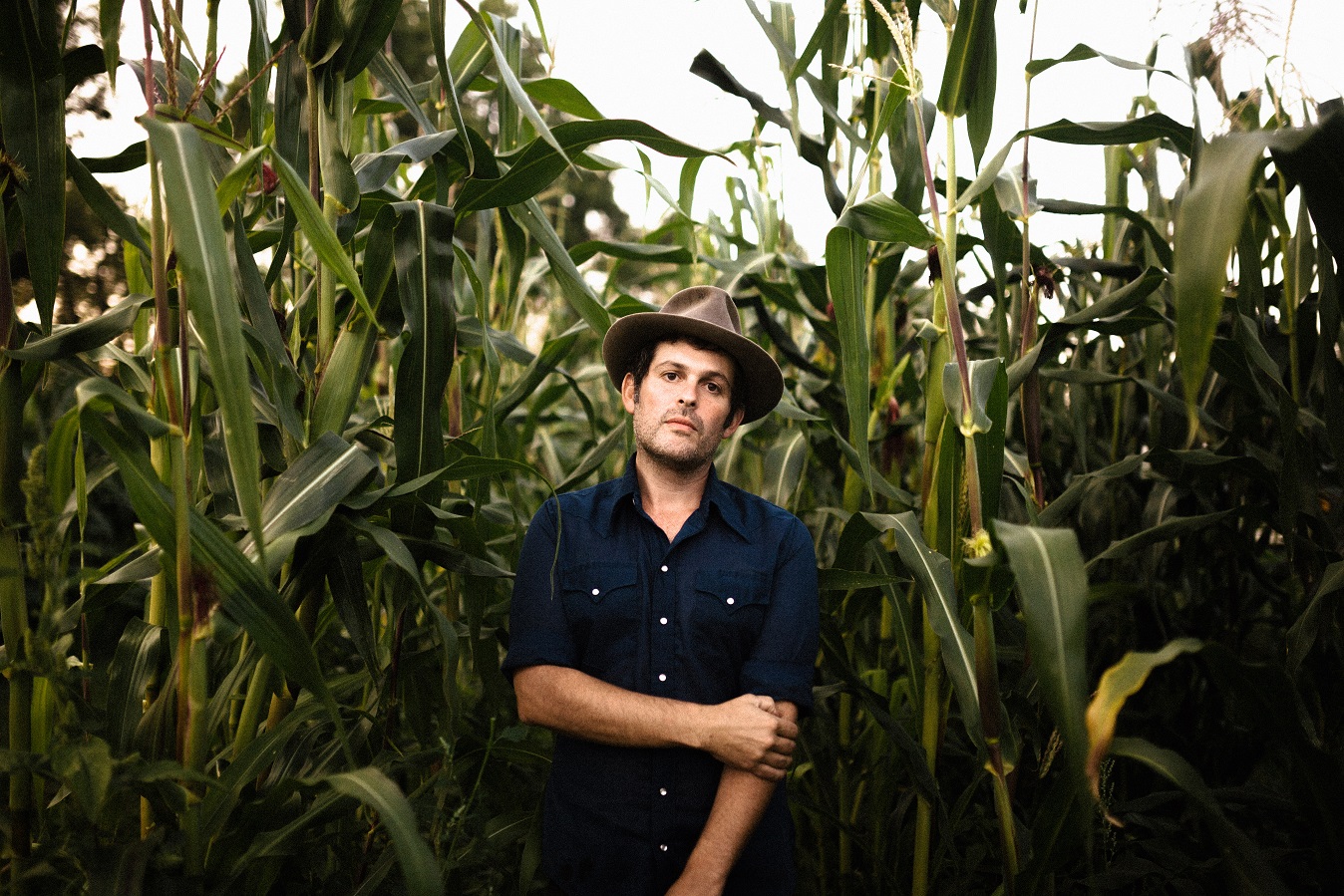
For all its lyrical depth, Evening Machines is also sonically stunning: An assortment of refreshing sounds, developed during and after sundown, inspired Isakov to create his most ambient, emotive, and vulnerable music yet. “Bullet Holes,” one of the record’s brighter sonic moments, is a plaintive post-breakup reflection: “We’re clutching, but there ain’t nothing we can hold,” he laments. The breathtakingly sweet acoustics of “Chemicals” hit hard through soft sounds, standing out as one of Isakov’s most memorable, intimate, and aching ballads. The slow-burning builds in songs like “Powder” and “Was I Just Another One” perfectly capture the intense underlying emotion driving them forward.
In fact, the word “intense” might prove one of the album’s better descriptors – for Evening Machines is inescapably intense. “It was like building a house and burning it down, and building it again. It took a lot of work to get that emotion there, that was subtle enough and spacious enough, and the right amount of space and the right amount of sound.”
I kind of always have to be on the edge of something to really get somewhere with it.
“Caves” is one such moment of on-the-edge intensity. A standout on Evening Machines, the foot-stomper pulses with heavy overdriven guitars, driving pianos, and hypnotic hums that eventually drown listeners in a flood of pent-up sonic fury, while simultaneously conveying profound sensitivity.
I used to love caves
stumble out into that pink sky
remember that bright hollow moon
it showed our insides on our outsides
this town closes down the same time every day
put out the smoke in your mind
let’s put all these words away
let’s put all these words away
– “Caves,” Gregory Alan Isakov
Explosive though it may be, “Caves” is a song about nature and silence – especially being comfortable in silence. “We played it pretty hard,” Isakov recalls, “But sometimes you’ll play something really hard and it’ll come out quiet… All of us sang all the words, kind of like a chant. I think one aesthetic behind that was, you know those kind of epic triumphant songs where you can hear a giant crowd of people singing? I wanted to have that vibe, and to have really obscure lyrics with that contrast. To have a big crowd, and everyone singing this super obscure story.”
Isakov maintains his own perplexity when it comes to the sheer magnitude of emotion and mood throughout Evening Machines. “It was just what the music did. It could have been they’re all night songs,” he muses. “They’re all songs that I made at night, I don’t know – but I wonder that too!”
I guess sad songs make me happy. I like them; I like investigating the underworld. I think there’s a lot there.
Evening Machines concludes with “Wings in All Black,” an ethereal song that develops a thick, emotionally-potent atmospheric soundscape. “For me, this is the ultimate redemption song. I knew it might not resonate with a lot of people, but for me that song is so important. I put that on at the end because I wanted to give a nod to that whole process of a difficult period of time, and kind of coming around and being like, it’s been rough, but I’m back. We can’t climb out. It’s a reminder that we can climb out of shit that’s hard.”
She turns to water,
she goes slippin through the cracks
And all that you gave her,
you’ll never win back
You circled the sun,
you wore your wings in all black
See, I been down down down…
But now I’m back
While singling out his favorite song is like a parent choosing between their children, Isakov concedes that one of his favorite moments on the record is in its closing tune. “The way the music kind of flows out of the song, it kind of changes… Steve [Varney] and I were set up, and he was tuning the guitar and I was just recording, and I was like, let’s come up with a tune-y solo. One of my favorite moments on the record is just this old guitar we had plugged into an amp, and the room mics were on, but you could kind of hear the acoustic strings of the hollow-body itself. That kind of solo piece of music, starts a little out of tune and then it kind of gets in there… I just love how that came out.”
It is with this cavernous finale that we begin to come up for air. From “Berth,” where we leave the past behind, through “Wings in All Black” and our arrival to somewhere new and unfamiliar, Evening Machines brings its audience on an enchanting, all-encompassing journey.
I just think it’s really important to me to make a record that’s useful; that’s utilitarian.
“The records that have been in my life over and over and over again, they’re just such a gift to my life; they’re such important pieces of what I’m doing, and my experience,” Isakov observes. “I think one of the reasons why I’m so arduous and I take my time on records, is that I really wanted to make something for someone, even if it’s one person that finds that… That’s the most important thing for me. But I don’t feel like they’re mine anymore, once I put it out.”
A record of movement, connection, and continuity, Evening Machines is beautifully vulnerable and infectiously enchanting: An intimate and intense expedition into the human condition ideal for solitary reflection, as well as communal congregation.
In his album’s final moments, Gregory Alan Isakov repeatedly sings, “I’ve been down, down, down, down…” We can feel the depths of his darkness; the chokehold of the surrounding air, the totality of it all – until eventually, he complete his sentence: “I’ve been down, down, down, down… But now I’m here.”
From beginning to end, Evening Machines is a story not of physical travel, but of emotional travel; a narrative of redemption and triumph.
— —
:: stream/purchase Evening Machines here ::
— — — —
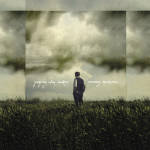
Connect to Gregory Alan Isakov on
Facebook, Twitter, Instagram
Discover new music on Atwood Magazine
? © Rebecca Caridad

